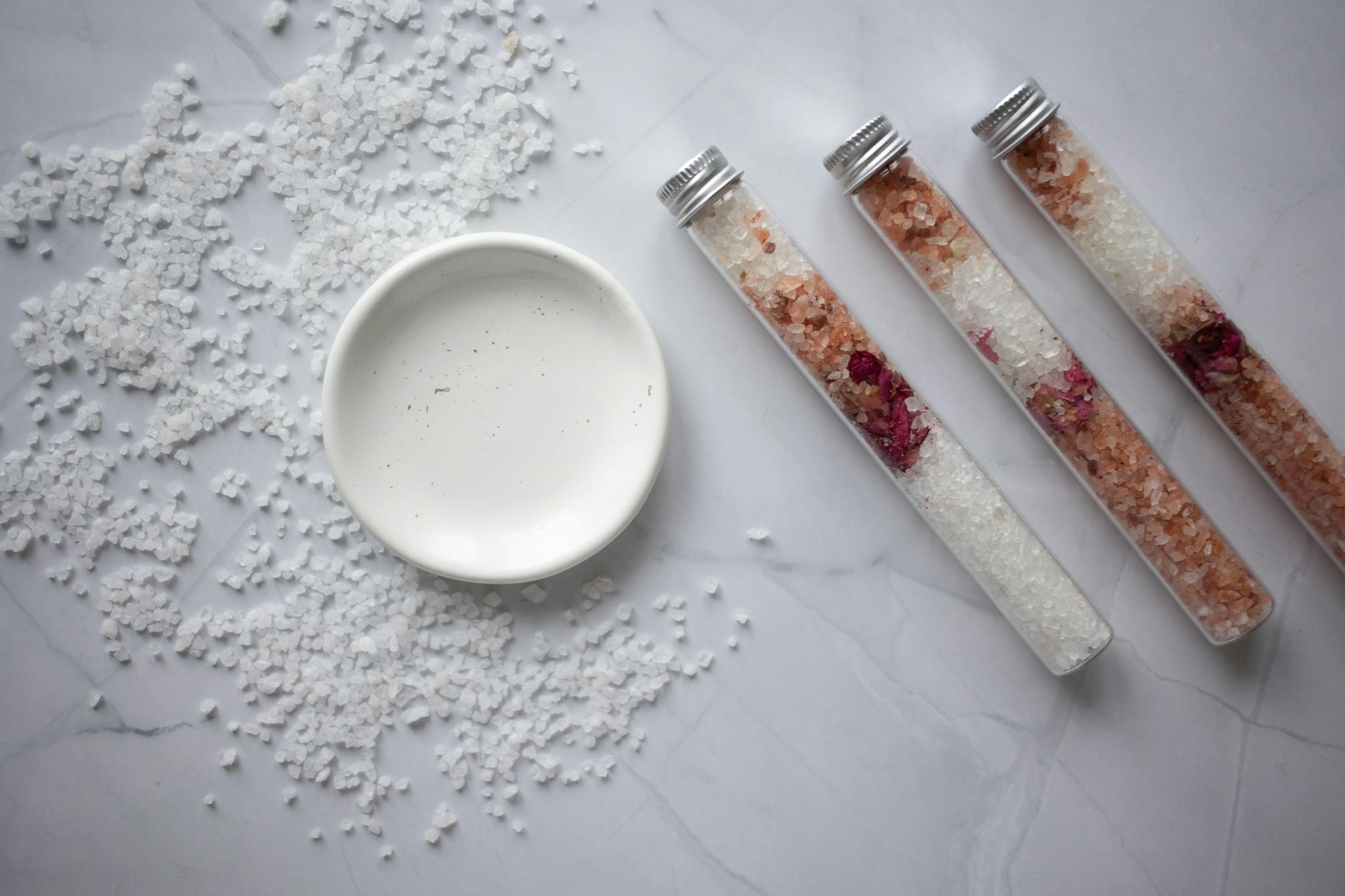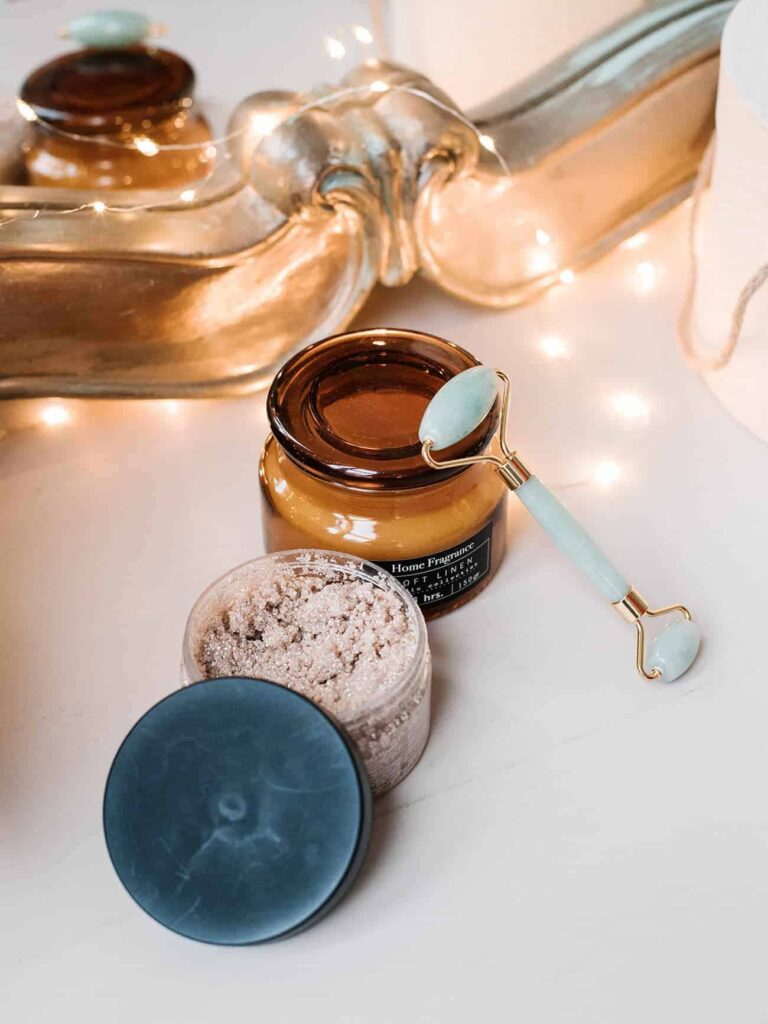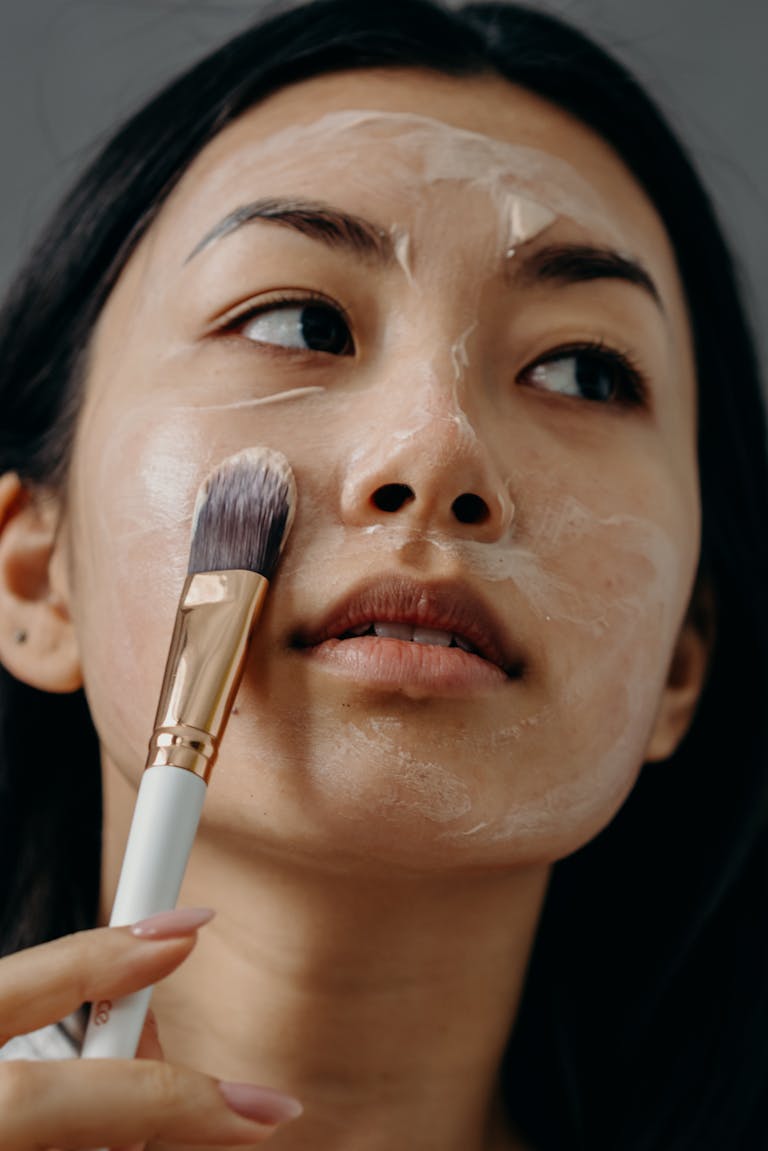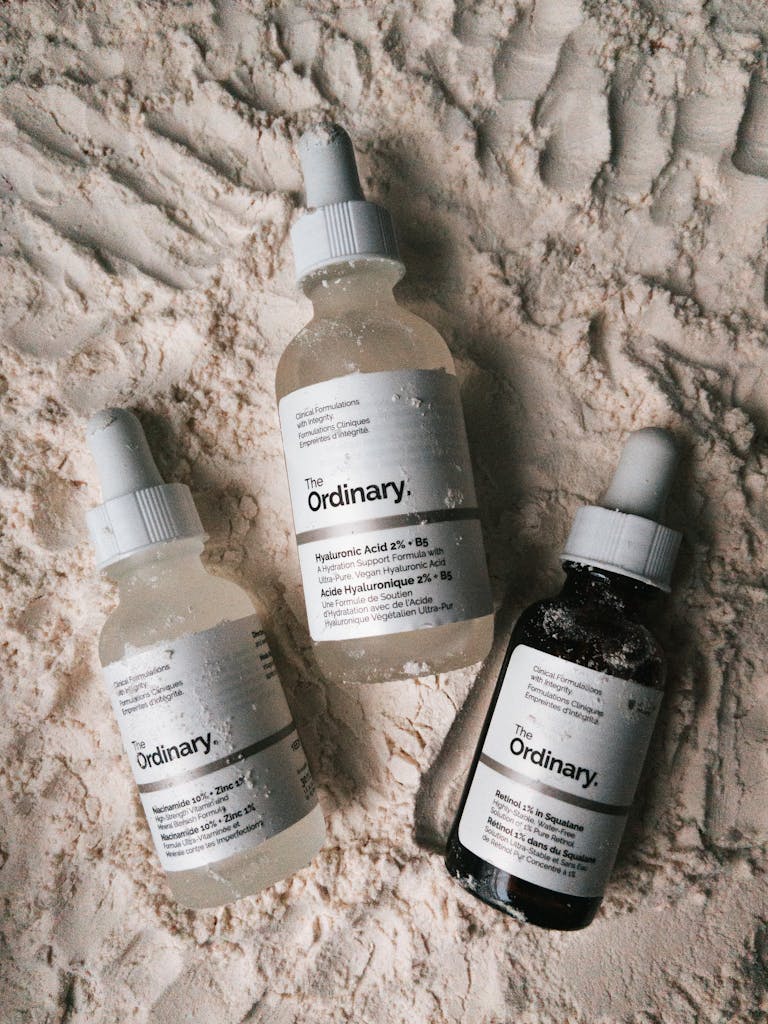
In recent years, there’s been a significant shift towards natural skincare products. But what’s driving this trend, and why are natural ingredients so effective? Let’s delve into the world of natural skincare and discover how these powerful ingredients can transform your skin.
Why Go Natural?
The shift towards natural skincare isn’t just a passing trend, it’s a movement grounded in numerous benefits. Let’s explore in greater depth why more people are opting for natural ingredients in their skincare routines:
- Gentler on Skin: Natural ingredients are often less likely to cause irritation or allergic reactions. This is particularly beneficial for those with sensitive skin or conditions like eczema or rosacea. Many synthetic ingredients can be harsh or stripping, disrupting the skin’s natural balance. Natural alternatives tend to work more harmoniously with your skin’s physiology.
- Nutrient-rich: Plants are treasure troves of vitamins, minerals, antioxidants, and other beneficial compounds. For instance, rosehip oil is packed with vitamin C, while avocado oil is rich in vitamin E. These nutrients can nourish your skin on a cellular level, promoting overall skin health and potentially slowing signs of ageing.
- Environmentally Friendly: Natural ingredients are often more sustainable and biodegradable than their synthetic counterparts. Many can be sourced ethically and organically, reducing the environmental impact of your skincare routine. Additionally, natural products typically require less processing, which can mean a lower carbon footprint.
- Multi-tasking: Many natural ingredients offer multiple benefits, which can simplify your skincare routine. For example, jojoba oil moisturises, balances oil production, and has anti-inflammatory properties. This multi-functionality can lead to using fewer products, saving both money and time.
- Fewer Harsh Chemicals: Natural skincare products often avoid potentially harmful ingredients like parabens, phthalates, and artificial fragrances. While not all synthetic ingredients are harmful, reducing exposure to unnecessary chemicals can be beneficial, especially for those with sensitive skin.
- Transparency: Natural skincare brands often pride themselves on ingredient transparency. It’s usually easier to understand what’s in your products when the ingredient list consists of recognisable plant names rather than complex chemical compounds.
- Holistic Approach: Natural skincare often aligns with a holistic approach to health and wellness. Many people find that using natural products fits well with other lifestyle choices, such as eating organic food or using eco-friendly household products.
- Potential for Customisation: Natural ingredients lend themselves well to customisation. You can often mix and match natural oils or create DIY masks to address your specific skin concerns, allowing for a more personalised skincare routine.
- Aromatherapeutic Benefits: Many natural ingredients have pleasant, natural scents that can provide aromatherapeutic benefits. For example, lavender can be calming, while citrus scents can be invigorating.
- Long-term Skin Health: Natural ingredients often work to improve the overall health of your skin, not just mask symptoms. For instance, rather than simply covering up dry skin, natural oils can help restore your skin’s moisture barrier over time.
- Ethical Considerations: Many natural skincare brands are committed to ethical sourcing and fair trade practices. By choosing these products, you’re often supporting sustainable agriculture and local communities.
- Potential for Fewer Side Effects: While individual reactions can vary, natural ingredients often have a long history of use, with well-understood effects on the skin. This can mean a lower risk of unexpected side effects compared to newly developed synthetic compounds.
It’s important to note that “natural” doesn’t automatically mean “better” or “safer” for everyone. Some people may have allergies to natural ingredients, and natural products can still cause reactions. Always patch-test new products and consult with a dermatologist if you have specific skin concerns.
Moreover, the term “natural” isn’t regulated in the cosmetics industry, so it’s crucial to read ingredient lists and research brands to ensure they align with your expectations of natural skincare.

Key Natural Ingredients to Know
- Aloe Vera:
- Properties: Soothing, hydrating, anti-inflammatory
- Benefits: Calms irritated skin, moisturises without clogging pores, aids in healing
- Suitable for: All skin types, especially sensitive and sunburnt skin
- Coconut Oil:
- Properties: Moisturising, antibacterial, antifungal
- Benefits: Hydrates dry skin, may help combat acne-causing bacteria
- Suitable for: Dry and normal skin (use cautiously on oily or acne-prone skin)
- Honey:
- Properties: Humectant, antimicrobial, antioxidant
- Benefits: Attracts and retains moisture, may help heal blemishes, fights free radicals
- Suitable for: All skin types, particularly effective for acne-prone skin
- Rose Water:
- Properties: Toning, anti-inflammatory, pH balancing
- Benefits: Soothes irritated skin, helps maintain skin’s natural pH, refreshes and hydrates
- Suitable for: All skin types, especially sensitive and combination skin
- Green Tea:
- Properties: Antioxidant-rich, anti-inflammatory, astringent
- Benefits: Protects against free radical damage, may reduce redness and puffiness
- Suitable for: All skin types, particularly beneficial for oily and acne-prone skin
- Jojoba Oil:
- Properties: Moisturising, balancing, non-comedogenic
- Benefits: Mimics skin’s natural oils, helping to regulate sebum production
- Suitable for: All skin types, including oily and acne-prone skin
- Tea Tree Oil:
- Properties: Antimicrobial, anti-inflammatory
- Benefits: Helps combat acne-causing bacteria, may reduce inflammation
- Suitable for: Oily and acne-prone skin (always dilute before use)
- Shea Butter:
- Properties: Deeply moisturising, anti-inflammatory
- Benefits: Provides intense hydration, may help soothe eczema and other skin conditions
- Suitable for: Dry, normal, and sensitive skin
- Chamomile:
- Properties: Soothing, anti-inflammatory, antioxidant
- Benefits: Calms irritated skin, may help reduce redness and inflammation
- Suitable for: All skin types, especially sensitive and reactive skin
- Rosehip Oil:
- Properties: Rich in vitamins and essential fatty acids
- Benefits: May help reduce the appearance of scars and fine lines, promotes skin regeneration
- Suitable for: All skin types, particularly beneficial for mature and damaged skin
- Calendula:
- Properties: Healing, anti-inflammatory, antimicrobial
- Benefits: Soothes irritated skin, may help heal minor wounds and skin infections
- Suitable for: All skin types, especially sensitive and acne-prone skin
- Hyaluronic Acid (naturally derived):
- Properties: Intensely hydrating, plumping
- Benefits: Attracts and holds moisture, may help reduce the appearance of fine lines
- Suitable for: All skin types, particularly beneficial for dry and mature skin
When incorporating natural ingredients into your skincare routine, keep these points in mind:
- Patch test: Always, always, always perform a patch test before using a new ingredient, especially if you have sensitive skin. We don’t want to be out on the street looking like a beetroot!
- Quality matters: Look for high-quality, organic ingredients when possible to avoid pesticides and other harmful chemicals.
- Concentration: Be aware that natural doesn’t always mean mild. Some natural ingredients can be potent and should be used in appropriate concentrations.
- Combinations: Certain natural ingredients work synergistically. For example, vitamin C and vitamin E enhance each other’s antioxidant properties.
- Storage: Natural ingredients may have shorter shelf lives than synthetic ones. Store products properly and be aware of expiration dates.
- Individual reactions: Remember that even natural ingredients can cause allergic reactions in some individuals. If you experience any adverse effects, discontinue use immediately.
By understanding and harnessing the power of natural ingredients, you can create a skincare routine that not only addresses your specific skin concerns but also nourishes and supports your skin’s overall health. The key is to choose ingredients that align with your skin type and concerns, and to use them consistently as part of a comprehensive skincare regimen.
Natural Ingredients and the Makeup Industry
The shift towards natural ingredients isn’t limited to skincare – it’s making significant waves in the makeup industry as well. As consumers become more conscious about what they put on their skin, makeup brands are responding with innovative products that harness the power of natural ingredients.
Why Natural Makeup?
- Skin-friendly: Natural makeup often contains fewer irritants, making it suitable for sensitive skin.
- Nourishing: Many natural ingredients offer skincare benefits alongside colour and coverage.
- Environmental concerns: Natural ingredients are often more sustainable and biodegradable.
- Transparency: Consumers appreciate recognisable ingredient lists.
Key Natural Ingredients in Makeup:
- Mineral Pigments:
- Uses: Foundation, blush, eyeshadow
- Benefits: Non-comedogenic, often suitable for sensitive skin
- Jojoba Oil:
- Uses: Lipsticks, foundations
- Benefits: Moisturising, mimics skin’s natural oils
- Shea Butter:
- Uses: Lipsticks, concealers
- Benefits: Hydrating, helps products glide on smoothly
- Coconut Oil:
- Uses: Lip products, cream-based makeup
- Benefits: Moisturising, has antimicrobial properties
- Kaolin Clay:
- Uses: Foundations, setting powders
- Benefits: Oil-absorbing, helps create a matte finish
- Aloe Vera:
- Uses: Foundations, BB creams
- Benefits: Soothing, hydrating
- Vitamin E:
- Uses: Various makeup products
- Benefits: Antioxidant, helps preserve other ingredients
Challenges in Natural Makeup:
- Colour Payoff: Achieving vibrant colours with natural pigments can be challenging.
- Longevity: Natural products may not last as long on the skin as their synthetic counterparts.
- Preservation: Natural preservatives may not be as effective, leading to shorter shelf lives.
- Texture: Some natural ingredients can affect the texture of products, making them less smooth or blendable.
Innovations in Natural Makeup:
- Plant-based Silicone Alternatives: Brands are developing natural ingredients that mimic the smooth, silky feel of silicones.
- Improved Natural Preservatives: New formulations are extending the shelf life of natural makeup products.
- Multifunctional Products: Many natural makeup items double as skincare, offering coverage alongside nourishing benefits.
- Customisable Pigments: Some brands offer customisable mineral makeup, allowing users to create their perfect shade.
The Future of Natural Makeup:
- Biotech Ingredients: Lab-created ingredients that are molecularly identical to natural ones may become more common.
- Sustainable Packaging: Expect to see more eco-friendly, possibly even biodegradable, makeup packaging.
- Waterless Formulations: To address environmental concerns, we may see more solid or powder makeup products.
- Enhanced Performance: Ongoing research is likely to improve the staying power and colour payoff of natural makeup.
Consumer Considerations:
- Read Labels: “Natural” isn’t a regulated term. Look for specific natural ingredients you trust.
- Patch Test: I have said it before and I will say it again! Even natural ingredients can cause reactions in some people.
- Manage Expectations: Natural makeup may perform differently from conventional products. It might require more frequent application or touch-ups.
- Consider Your Needs: If you have specific makeup requirements (e.g., very long-wearing for special occasions), you might need to balance natural and synthetic products.
The Rise of “Clean” Makeup:
Many brands are adopting a “clean” approach, which combines safe synthetic ingredients with natural ones. This allows for the benefits of natural ingredients while maintaining the performance of traditional makeup.
In conclusion, the natural makeup industry is growing rapidly, driven by consumer demand for healthier, more sustainable beauty options. While challenges remain, ongoing innovations are bridging the gap between natural ingredients and high-performance makeup. As the industry evolves, we can expect to see even more exciting developments in natural and clean makeup formulations.

The Future of Natural Skincare
The natural skincare industry is poised for significant growth and innovation in the coming years. As consumer awareness increases and technology advances, we’re likely to see exciting developments in this sector.
- Advanced Formulations: Scientists are developing more sophisticated ways to harness the power of natural ingredients. We can expect to see more stable formulations with increased efficacy, longer shelf lives, and improved texture. This might include encapsulation technologies to protect delicate natural actives or delivery systems that enhance ingredient penetration into the skin.
- Biotech Ingredients: The line between ‘natural’ and ‘synthetic’ is blurring with the rise of biotechnology. Lab-created ingredients that are molecularly identical to natural ones may become more prevalent. These could offer the benefits of natural ingredients with improved consistency and sustainability.
- Personalisation: Advancements in AI and machine learning could lead to highly personalised natural skincare routines. Imagine apps that analyse your skin and environmental factors to recommend a bespoke blend of natural ingredients.
- Sustainability Focus: The future of natural skincare is intrinsically linked with sustainability. Expect to see more brands adopting zero-waste packaging, refillable containers, and carbon-neutral production processes. There may also be a greater emphasis on locally sourced ingredients to reduce carbon footprints.
- Transparency and Traceability: Blockchain technology could revolutionise ingredient traceability, allowing consumers to track the journey of each ingredient from source to bottle. This increased transparency may become a standard expectation in the industry.
- Microbiome-Friendly Formulations: As our understanding of the skin microbiome grows, we’re likely to see more natural products designed to support and balance the skin’s beneficial bacteria.
- Climate-Adaptive Skincare: With climate change affecting skin in various ways, we might see the development of natural products specifically formulated to protect against environmental stressors like pollution and extreme weather.
- Ingestible Skincare: The concept of beauty from within is gaining traction. Natural skincare may increasingly encompass ingestible products like supplements and functional foods that support skin health from the inside out.
- Multi-Functional Products: As lifestyles become busier, there will likely be a trend towards multi-tasking natural products that offer several benefits in one formulation, simplifying skincare routines.
- Inclusivity: The future of natural skincare will likely see more products catering to a diverse range of skin tones and types, moving away from the one-size-fits-all approach.
- Fermented Ingredients: Fermentation can enhance the potency of natural ingredients. We may see more skincare products incorporating fermented botanicals for increased efficacy.
- Male-Focused Natural Skincare: As the male grooming market expands, expect to see more natural skincare lines specifically formulated for men’s skin concerns.
- Traditional Wisdom Meets Modern Science: There may be increased research into traditional natural remedies from various cultures, validated by modern scientific methods and incorporated into advanced skincare formulations.
- Waterless Formulations: To address water scarcity concerns, we might see a rise in waterless or low-water natural skincare products, such as solid cleansers, powdered masks, and highly concentrated serums.
- Upcycled Ingredients: The use of by-products from other industries (like fruit seeds from juice production) in skincare could become more common, aligning with circular economy principles.
Challenges and Considerations: While the future of natural skincare looks promising, it’s not without challenges. Ensuring the sustainability of popular natural ingredients as demand increases will be crucial. Additionally, as the market grows, there may be a need for more standardised definitions and regulations around terms like ‘natural’ and ‘clean’ to protect consumers from greenwashing.
In conclusion, the future of natural skincare is likely to be characterised by a blend of ancient wisdom and cutting-edge science, with a strong emphasis on efficacy, sustainability, and personalisation. As always, consumers will play a crucial role in shaping these trends through their choices and demands.

Conclusion: Embracing the Natural Skincare Revolution
As we’ve explored the power of natural ingredients, their benefits, and the future of natural skincare, it’s clear that we’re in the midst of a skincare revolution. This shift towards natural solutions is more than just a trend; it’s a fundamental change in how we approach skin health and beauty.
The appeal of natural skincare lies in its holistic approach. Rather than simply treating surface-level symptoms, natural ingredients work in harmony with our skin’s biology, supporting its inherent functions and promoting overall skin health. From the soothing properties of aloe vera to the balancing effects of jojoba oil, nature provides a vast array of ingredients that can address a multitude of skin concerns.
However, the journey towards natural skincare is not without its challenges. As consumers, we must navigate a market that’s not always transparent, where terms like ‘natural’ and ‘clean’ lack standardised definitions. It’s crucial to approach natural skincare with a blend of enthusiasm and critical thinking. Reading ingredient lists, understanding our own skin needs, and being willing to experiment are all part of the process.
The future of natural skincare promises exciting developments. Advancements in biotechnology, personalisation, and sustainable practices are set to revolutionise the industry further. We can look forward to products that are not only effective and tailored to our individual needs but also align with broader environmental and ethical considerations.
Yet, it’s important to remember that natural doesn’t automatically mean better for everyone. Skin is highly individual, and what works wonders for one person may not suit another. Patch testing, introducing new products gradually, and listening to our skin’s responses remain crucial practices, regardless of whether we’re using natural or synthetic products.
Moreover, the most effective skincare routines often combine the best of both worlds – harnessing the power of natural ingredients while also embracing safe, scientifically proven synthetic components when appropriate. The goal should always be healthy, balanced skin, achieved through methods that align with our personal values and skin needs.
As we move forward, education will play a key role. Understanding our skin type, recognizing our specific skin concerns, and learning about different ingredients will empower us to make informed choices. This knowledge, combined with the ongoing innovations in natural skincare, will allow us to craft skincare routines that are not only effective but also a pleasure to use.
Ultimately, the rise of natural skincare reflects a broader shift towards more conscious, sustainable living. It’s about more than just what we put on our skin – it’s a reflection of our values, our relationship with nature, and our understanding of health and wellness as interconnected concepts.
As we embrace this natural skincare revolution, let’s approach it with curiosity, patience, and an open mind. Whether you’re a long-time natural skincare enthusiast or just beginning to explore this world like I am, remember that the journey to healthy, radiant skin is personal and ongoing. Enjoy the process of discovering what works for you, and take pride in knowing that your choices can benefit not just your skin, but potentially the planet as well.
The future of skincare is natural, personalised, and sustainable – and it’s a future that’s already unfolding. By staying informed, being willing to experiment, and listening to our skin, we can all be part of this exciting evolution in beauty and self-care.






